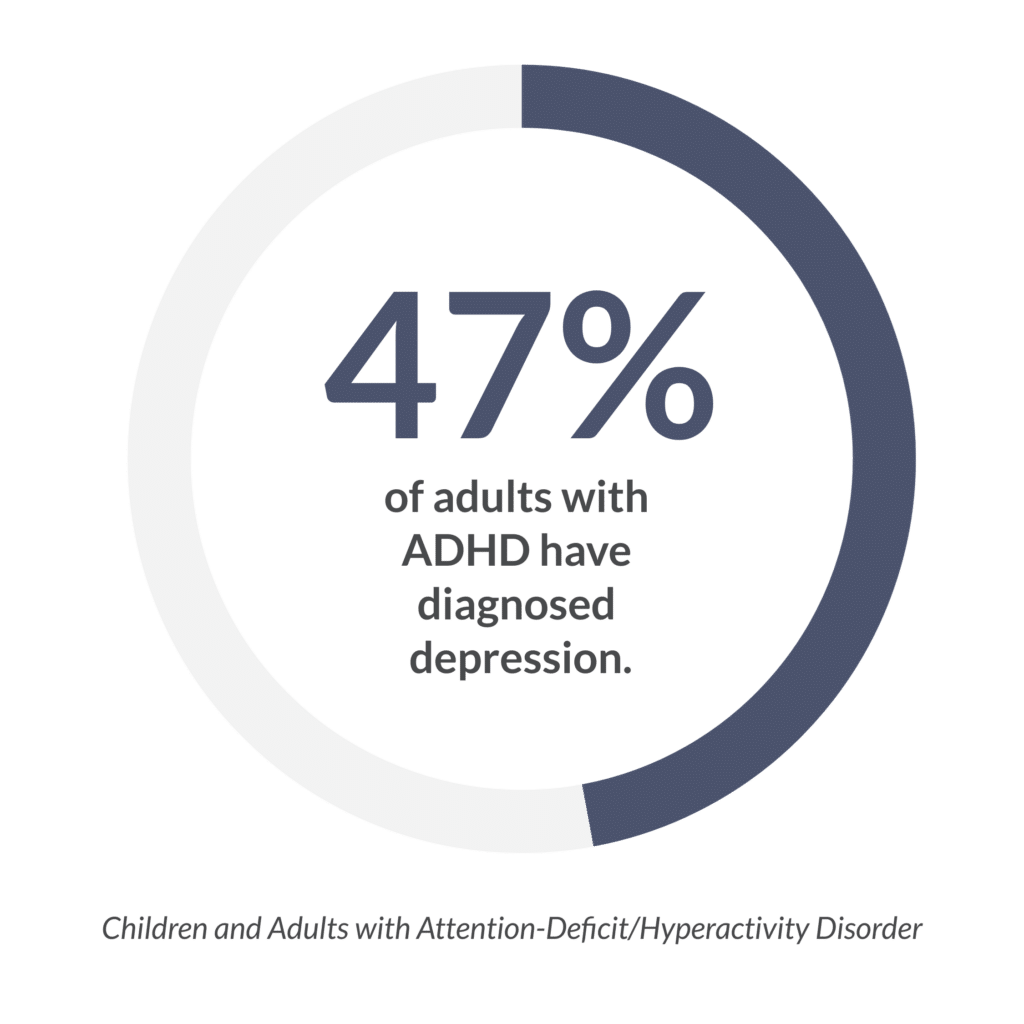By Wesley Gallagher
Diagnoses like autism and ADHD have historically been categorized as brain disorders or disabilities. However, while there are disadvantages that come with neurological differences, there are also unique strengths, talents, and viewpoints that neurodiverse individuals bring to the world around them.
The term neurodiversity was coined to reframe the way we view neurological differences: Rather than abnormalities, they are simply normal variations in the human genome, part of the diversity of human life.
While there are disadvantages that come with neurological differences, there are also unique strengths, talents, and viewpoints that neurodiverse individuals bring to the world around them.
The Neurodivergent Brain
While neurodiversity refers to the broad range of differences in all people, it is often used specifically in reference to neurodivergence. A neurodivergent brain works differently than a typical brain, and there are specific diagnoses that categorize neurological differences.
- Autism spectrum disorder (ASD) is associated with differences in communication, learning, and behavior, according to Harvard Health Publishing. Some people with autism can communicate verbally and live on their own while others are virtually nonverbal and need support in many areas of life.
- Attention deficit hyperactivity disorder (ADHD) is characterized by a pattern of inattention and/or hyperactivity and impulsivity. While these are the main diagnostic criteria, ADHD has wide-ranging effects on those who have it.
- Dyslexia is a language-based learning disability characterized by difficulty reading, spelling, writing, and pronouncing words. According to the International Dyslexia Association, dyslexia is considered a learning disability because it can make it difficult to succeed in a typical learning environment.
- Dyspraxia, or developmental coordination disorder, is a neurodevelopmental condition that causes issues with motor skills and coordination, explains the Cleveland Clinic.
- Dyscalculia is a learning disability characterized by difficulty understanding number-based information and math. While different from dyslexia, dyscalculia often co-occurs with dyslexia or other learning disabilities.
There are other diagnoses under the umbrella of neurodivergence, and within each diagnosis there is great neurodiversity. They are all neurodevelopmental, beginning during childhood while the brain is developing, even if they are not diagnosed until later in life.
Neurodiversity and Mental Health

While neurodivergence itself is not a mental health issue, people with atypical brains tend to struggle with mental health disorders at higher rates than the neurotypical population.
- CHADD (Children and Adults with Attention-Deficit/Hyperactivity Disorder) reports that about 47% of adults with ADHD also have diagnosed depression and 53% have anxiety.
- A systematic review and meta-analysis in The Lancet Psychiatry found pooled prevalence of anxiety disorders in autistic individuals at 20%, depression at 11%, and OCD at 9%.
Neurodivergence can make both diagnosis and treatment of mental health disorders more difficult, and many people who struggle with mental illness have unrecognized neurodivergence.
Spero Center at The Meadows’ Director of Nursing Deseree Denham has experience working with the neurodiverse community, but more importantly, she is a mother to two neurodiverse children.
This lived experience gives her a unique perspective working in the mental health world. “It colors how I deal with patients,” says Denham. “You can see those [neurodivergent] traits sometimes in people who don’t have the diagnosis.” This is important because what works for the neurotypical brain doesn’t necessarily work for the atypical brain, and special accommodations are often needed in treatment for neurodiverse individuals.
The Beauty of Neurodiversity
Denham is quick to point out that the uniqueness she sees in both her children and her neurodiverse patients can be a blessing. “There’s so much beauty in that different view,” she says. “Their problem-solving comes from a completely different angle, so their ability to excel in areas that a neuronormative person can’t is amazing.”
A global survey by the tech company Alludo, which notes that up to 20% of the global population is neurodivergent, found a range of self-reported strengths associated with neurodivergence:
- Creative, flexible, out-of-the-box thinking
- Strong observational skills and attention to detail
- Ability to stay focused for long periods of time
- Excellent ability to recognize patterns and solve math problems
Despite increased innovation, productivity, quality control, and employee engagement in companies with initiatives to hire more neurodivergent people, unemployment is still as high as 80% among the neurodivergent population, according to Harvard Business Review.
Fortunately, there are simple changes to be made. Harvard Health Publishing recommends the following ways to make workplaces and other environments more inclusive:
- Accommodation of sensory needs like noise reduction, workplace comfort measures, and allowance of fidget toys and movement breaks
- Clear communication including step-by-step written instructions and avoiding sarcasm or implied meaning that neurodivergent people may not catch
- Clarity about social etiquette for those who don’t naturally understand such expectations
- Advance notice and explanation for any changes
- Inquiring about preferences, needs, and goals, and being kind and patient with people who are different
There is much more we can do to be more inclusive of our neurodivergent neighbors, and educating ourselves is the perfect place to start. The more our culture accommodates for differences, the more our diversity will flourish and benefit society as a whole.
The Meadows Has What You Need
The Meadows understands that there is no one-size-fits-all treatment program. At our main campus, as well as our sister programs, we provide tailored, individualized treatment to everyone who enters our doors.
We know that not all neurodivergent individuals feel comfortable in new environments, and accommodations are often needed to account for specific needs. We treat the whole person, not just the presenting mental illness or substance abuse, so your neurodivergence will not be ignored or minimized. If none of our standard treatment centers can meet your unique needs, Spero Center at The Meadows is our campus for those needing a more customized, gentler environment. Reach out to our admissions department today to find out more about how we can help you.

